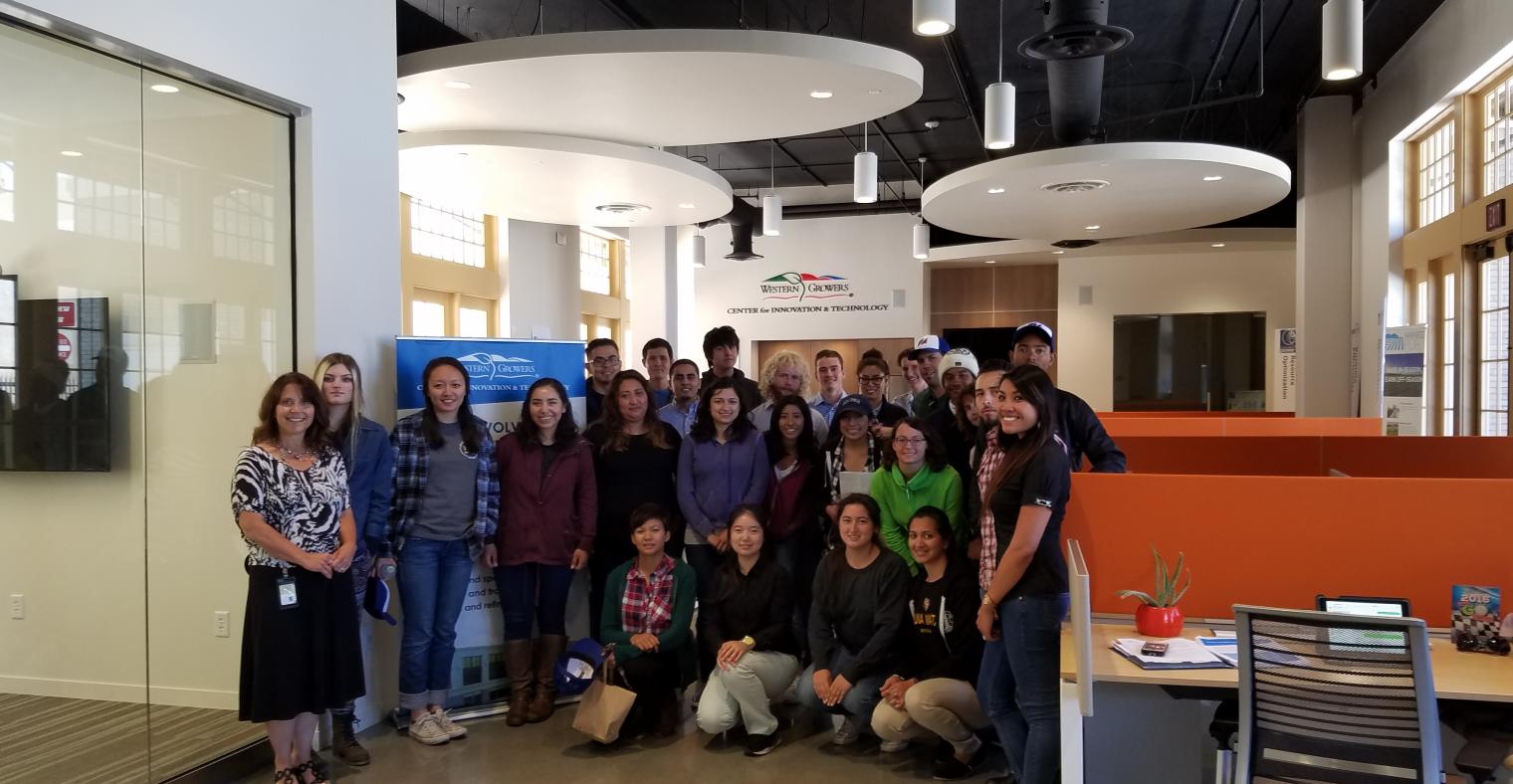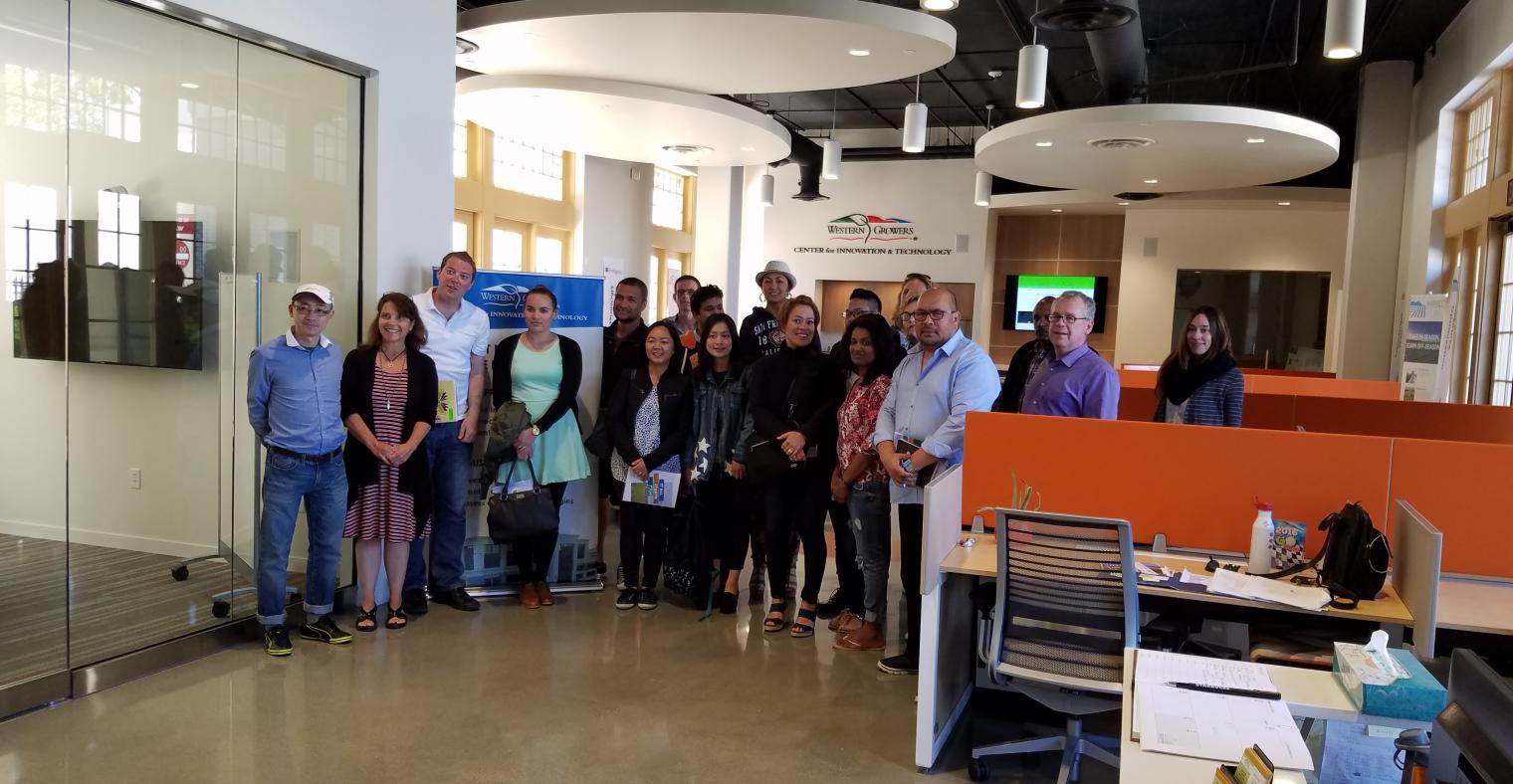Shaping the Next Generation of AgTech Leaders
Posted on June 29, 2016 16:04 PM by WGCIT
Recently, The Packer ran an article on the impending “brain drain” in the produce industry, as more and more long-term produce industry leaders retire. The same article included an interesting statistic on the rising age of farmers across the nation as well: the average age of U.S. Farmers is now 58.3 years, whereas three decades ago it was 50.5 years. This highlights the reason why Western Growers is so committed to shaping and educating the next generation of farmers and industry professionals.
“With the global population reaching 9.3 billion within the next 30 years, the agriculture industry will be growing at an even faster pace. We are going to need a skilled, knowledgeable and innovative future workforce to help feed the world,” said Tom Nassif, president & CEO of Western Growers, in a recent press release. “Western Growers is helping to lead the effort in building a highly-skilled agricultural workforce and shaping the next generation of ag pioneers.”
In April, the Swiss Federal Institute of Technology visited the WGCIT to learn how technological innovations can be used to tackle food system challenges. Twenty students from Switzerland, Spain, German, U.S., China, and the Philippines toured the Center with some of the most notable leaders in the Salinas Valley. The students also had the opportunity to interact with startups in the WGCIT, like Rao Mandava and Matt Fry of Ineligistics. This allowed the students to see real world applications to the most pressing food system challenges.
This month, Western Growers collaborated with UC Davis College of Agriculture and Environmental Sciences and Cal Poly Pomona College of Agriculture to bring a cohort of students to Central California to learn more about careers in agriculture now, and potential careers in the future. As part of the newly launched Careers in Ag Program, the student cohort visited Monsanto Vegetable Seeds, California Giant Berry Farms, Ocean Mist Farms, SmartWash Solutions, Ramsay Highlanders, GreenGate Fresh, Tanimura & Antle Farms, and the WGCIT. They also had guest speakers like Richard Smith, Vegetable Crops and Weed Science Farm Advisor for the UC Cooperative Extension in Monterey County, and Beau Schoch, Agricultural Engineer with the USDA Natural Resources Conservation Service in Salinas USDA. The finale of the student tour was at the WGCIT in Salinas, and the students were very engaged with the industry and the Salinas area. The consulting manager of the WGCIT, Lisa Dobbins, gave a terrific presentation on the Center and the 16 startups it currently retains. Patrick Zalaya, of resident startup HeavyConnect, talked to the students about different pathways into agriculture through computer programming, and emphasizing a need to learn technologies in addition to traditional agricultural coursework. Over lunch, the students were encouraged to speak to the present startups and interns about what they were currently working on, and how their coursework lead them to the WGCIT.
At the end of June, a group of MBA students visited the WGCIT from New Zealand’s Massey University. Massey University is a national university in New Zealand, with campuses in the cities of Auckland, Palmerston North, and Wellington. The MBA students assembled in New Zealand from all over the world; Massey University’s 25 month program is structured to provide executives business expertise across a broad range of disciplines. As farming is such a significant part of New Zealand’s economy, the students were focused on the agricultural industry of the United States. As MBA students, they wanted to know what each startup was working on, and how the WGCIT helped them work collaboratively. They also enjoyed Lisa Dobbin’s presentation on the Western Growers Association, and were particularly interested in how the organization supports the agricultural industry, its members, and the WGCIT startups. While in Salinas, the Massey University MBA student cohort will also be visiting the Agricultural Commissioner of Monterey County, the Grower-Shippers Association, Sabor Farms, and Church Brothers Farms. One of the students, Billie, was inspired by the formation of the Western Growers Center for Innovation and Technology. An indigenous New Zealander, she has close ties to her “Iwi and hapuu” tribal affiliations. As she left for a field tour, she mentioned that she would like to establish something similar back in New Zealand for Maori start-ups to foster business collaboration.



